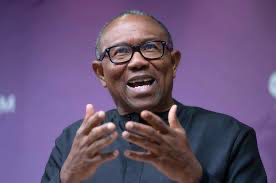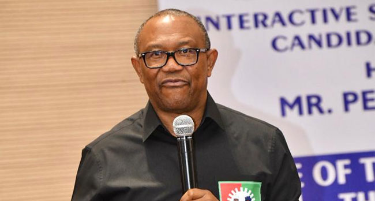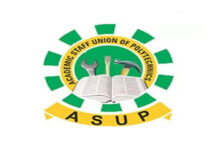Peter Obi, the presidential candidate of the Labour Party in the 2023 elections, has expressed his outrage over the recent vandalization of the Second Niger Bridge. He has called for immediate action to arrest and prosecute those responsible for the damage. This call to action was prompted by a video circulating online, featuring a man detailing how criminals are systematically destroying parts of this vital infrastructure.
Obi took to social media on Tuesday, posting on X (formerly known as Twitter), where he vehemently condemned the acts of vandalism. He described these acts as blatant sabotage, which not only undermine public safety but also inflict significant harm on commuters who rely on the bridge for daily travel.
In his post, Obi expressed his gratitude towards the individual who brought this issue to light. “I like to thank immensely the young man, Lord Zeus, driven by patriotism and courage to raise the alarm on the vandalisation of the Second Niger Bridge,” he wrote. He praised the man’s bravery in highlighting what he termed “senseless criminality,” stressing the importance of protecting public assets from such destructive acts.
“The viral video of this good Nigerian starkly points out the senseless criminality and vandalism of our collective assets which is capable of causing grievous harm to members of the public if left unchecked,” Obi stated. He detailed how the destruction of critical infrastructure like the Second Niger Bridge poses a severe threat to road users and represents a broader security risk to society.
Obi further elaborated on the widespread problem of public property vandalism, pointing to other instances such as the destruction of railway tracks, the theft of high voltage cables, and the removal of aluminum railings from bridges. He emphasized the need for a collective condemnation of these acts, which he described as both sabotage and criminality.
“We must condemn these acts of sabotage and criminality in their totality. Now that this critical issue has, again, been exposed, I urge the government and security agencies to do a follow-up by investigating deeply and bringing to book the perpetrators of such crimes,” Obi urged.

The former governor of Anambra State did not stop at merely condemning the vandalism. He called on the government to implement stringent measures to deter future acts of vandalism. Obi suggested that robust disciplinary actions should be enforced against those who damage public property. Moreover, he advocated for the installation of reliable surveillance systems to monitor and protect vital infrastructure. This, he argued, would not only prevent further vandalism but also enhance overall public safety.
Obi’s comments reflect a growing concern among Nigerians about the security and maintenance of public infrastructure. The Second Niger Bridge, in particular, has been a significant project, representing a substantial investment aimed at improving connectivity and economic activities between the eastern and western parts of Nigeria. The vandalism of such a critical asset underscores the urgent need for better protective measures and stricter law enforcement.
In calling for decisive action, Obi aligns himself with the sentiments of many Nigerians who are frustrated by the recurrent destruction of public assets. His plea for government intervention and enhanced security measures highlights the broader need for systemic changes to safeguard Nigeria’s infrastructure. As this issue gains more attention, it remains to be seen how authorities will respond to these calls for action and what measures will be put in place to prevent future occurrences.
The situation surrounding the Second Niger Bridge serves as a reminder of the importance of community vigilance and the role of citizens in safeguarding public assets. As Obi has shown, it is crucial for individuals to speak out against such acts of vandalism and for the government to take these concerns seriously, ensuring that public infrastructure is preserved for the benefit of all.




